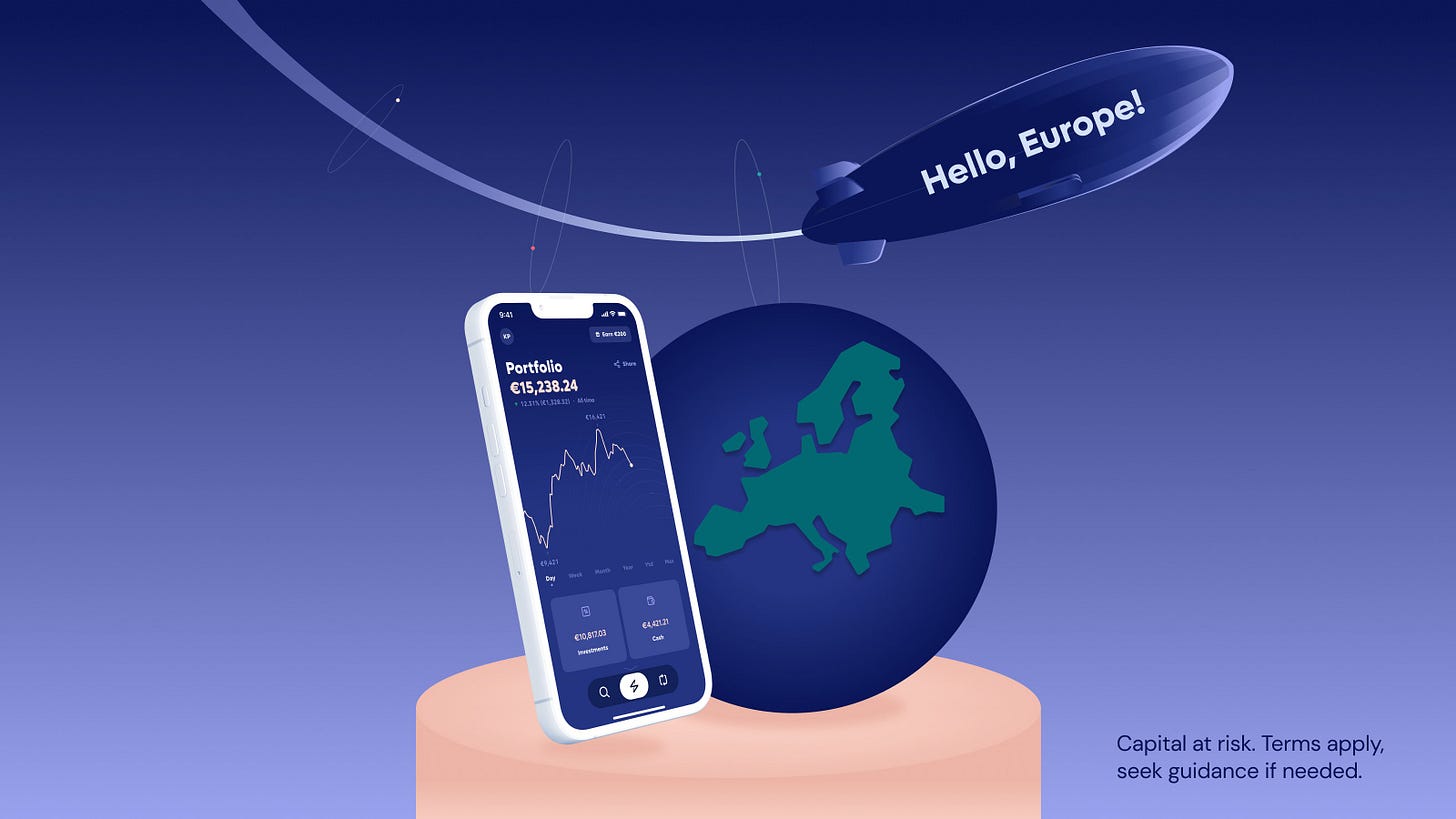
Melting is not only the ice cream because of the heatwave… Many companies decided to melt off part of their workforce. Several of Europe’s best-known fintech startups have made drastic cuts to their teams in order to cut costs and preserve their cash runway as the global economy takes a downturn. Listed below are some of them, along with their rationales.
In May, the Swedish payment giant Klarna announced that it would lay off 700 employees, who account for 10% of its global workforce. The roles affected are in the talent acquisition and engineering teams. Klarna co-founder and CEO Sebastian Siemiatkowski listed different macro and geopolitical factors, like the shift in consumer sentiment, a steep increase in inflation, a highly volatile stock market, and a likely recession, as what led to the decision for the layoffs.
Curve, the London-based digital wallet aggregator, let go of 70 people, amid mounting fears of a recession.
The London Headquartered challenger trading platform Freetrade announced, that 15% of its staff will be affected by layoffs. Cost reduction and extending the cash runway are named reasons for the action.
Nuri, the Berlin-based digital bank, announced to let go of 45 employees, that’s about 20% of its workforce. Two months later, the news broke, that the company filed for insolvency as a result of struggles with the setback in cryptocurrency prices, economic uncertainty, and a difficult funding environment.
The business banking startup Kontist has to let go of a quarter of its team which means approximately 50 people will be laid off.
Also, Trade Republic, the online trading unicorn, joined the layoff train. According to the startup, it wants to keep the company size of around 700 employees. The people affected by downsizing work in recruiting, software development, and customer support. According to the spokeswoman, Trade Republic now wants to focus more on the tech sector.
We should not forget the “cryptocalypse”. Cryptocurrencies have suffered a brutal comedown this year, making some of them lose almost 70%(f.e. Bitcoin) of their value against the previous year. In a recent announcement, Bitpanda, the Austrian cryptocurrency brokerage, announced that its workforce would be reduced from 1100 to 730 individuals. The company said that the decision was made in order to navigate out of the current market downturn and admitted that it may have expanded too quickly, after having previously committed to a "hyper-growth" strategy.
According to Techcrunch, 15,000 workers worldwide were laid off in May by tech companies and start-ups. Several other companies have announced that they are no longer accepting new hires. Among them, big techs like Google and GitHub, freezing their hiring with immediate effect. Meta has paused hirings for several verticals, roles affected are within the field of engineering and data science.
Behind the mass layoffs and austerity measures is the rapid decline of company valuations in the tech and start-up scene. The rise in inflation and interest rates has caused investors to become increasingly critical of loss-making tech companies, resulting in a push for reduced costs. From the client perspective, many fintech startups observed a change in user behavior, where many of the clients, who are living through this period of market uncertainty, have to watch every cent.
The Latest:
📍 Apple Pay Later
Image source: Apple
Apple is launching a new feature for Apple Pay to let customers pay for purchases in 4 installments over the time of six weeks without interest. Users can apply for Apple Pay Later when they are checking out with Apple Pay, or in Wallet. Apple's Buy Now Pay Later solution is accepted online or in apps with the Mastercard network. Apple will run soft credit checks when someone applies for Pay Later. In case of missed payments, Apple won’t report to credit bureaus but will restrict access to credit to users who miss payments. Goldman Sachs is facilitating Apple Pay Later by allowing Apple to access the Mastercard network since Apple has no license to issue payment credentials directly. In the future, Apple Financing LLC, Apple´s new subsidiary, will handle underwriting and lending activities. 👉🏻 More here
📍 Revolut Pay Later
Revolut rolled out its Buy Now, Pay Later product in Ireland in anticipation of expanding to other European countries, like Poland and Romania, in the near future. Revolut Pay Later doesn't require a partnership between retailers and Revolut, and it's integrated into the cards section of Revolut's app. The new service involves an approved credit limit for customers, which means, that, unlike other BNPL providers, Revolut approves the credit limit before the transaction, rather than offering an installment payment method at the point of sale. Revolut is checking customer affordability by linking to customers’ existing bank accounts through open banking. Qualified customers can use Pay Later for purchases up to a maximum of €499 and spread the cost of purchase across 3 monthly installments. A 1.65% fee per purchase is also repaid as part of the final two installments. Customers are also able to repay installments early if they wish without additional fees. 👉🏻 More here
📍 Revolut Reader
Image source: Revolut
Revolut moves into stores with physical card readers, the company’s first hardware device, designed to allow merchants to accept payments anywhere. By opening a Merchant Account with Revolut Business, customers can connect a business account to Revolut Reader and gain free access to smart Revolut Business tools like local and international payments, foreign exchange at the interbank rate, IBAN for global transfers, payments requests, expenses, subscriptions and company cards management, payroll, Revolut Pay check-out solution. Revolut Reader accepts transactions made with debit and credit cards, as well as contactless payment methods. Each device costs £49 plus shipping, there's no monthly fee for using Revolut Reader. It has competitive pricing as low as a 0.8% + £/€0.02 per transaction fee and a one-off cost or customized pricing for businesses dealing with high volumes. Revolut is currently actively focusing on small and medium businesses, freelancers, and casual sellers. A point of sale solution for large merchants will be introduced in the upcoming months. 👉🏻 More here
📍 RaiPay launch in Austria
Initially launched in 2019, RaiPay is a NFC payment application across CEE (live in the Czech Republic, Hungary, Croatia, Romania, Bulgaria, Serbia, and Kosovo) and replaces the previous ELBA-pay app. The card management function offers an overview of all digital cards and connections to online retailers or subscription services. With the loyalty function, all physical customer cards can be digitized and stored within the app. The p2p payment function allows sending money from card to card by entering the card number or holding the receiver card to the smartphone of the sender. The app is designed for Android smartphones, but iOS users can also use RaiPay's card management, loyalty card, and money transfer functions. In this case, contactless payments and withdrawals are made via Apple Pay. 👉🏻 More here
📍 WU+
Image source: Western Union
Western Union has been working on a digital banking pilot and shopping platform in Europe, starting first in Germany and Romania. The shopping platform, WU Shop, will let Western Union customers shop at more than 12,000 merchants across 60 countries and get cash-back perks. For their banking unit, Western Union has been teaming up for its services with some fintech startups. With Marqueta for their card issuing services and Mambu for their cloud banking solution. The new digital banking app in Germany called WU+, combines multi-currency digital banking and international money transfers. It comes with a free bank account & VISA Platinum debit card, 3% interest on balances up to 3000 € for premium customers, 1% for regular customers, and 3 fee-free international money transfers across Western Union's global network. The plan is to launch the app in other European countries later this year. 👉🏻 More here
📍 Lightyear Europe launch
Image source: Lightyear
The British trading app Lightyear wants to take on Trade Republic in Germany and is available in 19 European countries thanks to their license from Estonia. Lightyear offers around 3,000 assets for trading, stocks, and ETFs. Lightyear wants to score particularly with multiple-currency accounts and fee-free access to thousands of global stocks. There is an exchange fee of 0.35% for changing currency between euros and dollars. By viewing the company stock customers get all the key information they need to make informed decisions. With Lightyear Profiles, users can share strategies with their friends. 👉🏻 More here
📍 Upvest
One of Germany’s biggest fintech investments of the year comes by ABN AMRO Ventures and Speedinvest into the Berlin-based fintech company Upvest. Upvest is designed as a plug-and-play solution, with full process automation, the investment API, and its own cloud-based core banking system, which should help FinTechs, banks, and brokers save on costs, So they no longer have to develop a trading and custody solution in-house. The Investment-API can be easily connected to existing backends and can be immediately deployed, enabling businesses to build great investment experiences for their end-users, even across international borders. Upvest, wants to establish Investment-as-a-Service as a new category and become the technical backbone for all fintechs, banks and asset managers. 👉🏻 More here
📍 Revolut & Tink
Revolut entered into a strategic partnership with Tink. At the heart of the collaboration is Tink's Payment Initiation Services (PIS) technology, which allows users to pay directly from their bank account, rather than using their 3rd party debit or credit cards like Visa or Mastercard. Because Tink's service PIS enables users to connect to the bank account they want to transfer money from and instantly authorize and complete the payment without leaving the Revolut app. This allows Revolut users across Europe to seamlessly move money into their Revolut accounts. 👉🏻 More here
📍 N26 & Stripe
N26 is teaming up with Stripe to power its payments and make onboarding easier. With help of Stripe N26 will simplify the account top-up process and offer credit card, debit card, and digital wallet top-up options directly within the N26 app. According to Stripe, the implementation of the new pay-in flow succeeded with the help of Stripe’s documentation in just 6 weeks. N26 is joining the growing list of companies, like Ford, Spotify, and Klarna, that are turning to Stripe for their payment processing. 👉🏻 More here
📍 Deutsche Bank & Credi2
Deutsche Bank and the Viennese fintech Credi2 have announced cooperation to develop a white-label Buy Now, Pay Later product for online retailers and e-commerce marketplaces, by using the BNPL white-label software of Credi2. The first pilot projects are expected to start in Germany by the end of 2022. 👉🏻 More here
📍 Societe Generale & Lemonero
Lemonero, a Czech fintech, has raised money from Komerční banka, which makes it one of the biggest seed investments in the Czech Republic. Lemonero is an AI-driven lending tool for small and middle-sized online businesses, such as marketplaces and online shops. The company wants to use the funds for European expansion, primarily to France and the Netherlands, and later to the DACH region and Eastern Europe. 👉🏻 More here
📍 Atlantic Money Europe launch
Image source: Atlantic Money
Atlantic Money, the London-based currency transfer startup, has secured a license with the National Bank of Belgium to operate in Europe. Atlantic Money is the only international money transfer provider to offer a flat fixed fee of €3 for transfers up to € 100.000 at the interbank mid-market exchange rate (0% FX commission). Founded by two former Robinhood employees, Atlantic Money plans to launch gradually across the EU, starting with Belgium, Germany, and Austria. 👉🏻 More here
Good read
📚 Banking Technology Magazine July / August 2022 issue 👉🏻 Read here
📚 The Financial Brand Insights Magazine Summer edition 👉🏻 Read here
Twitter finds









